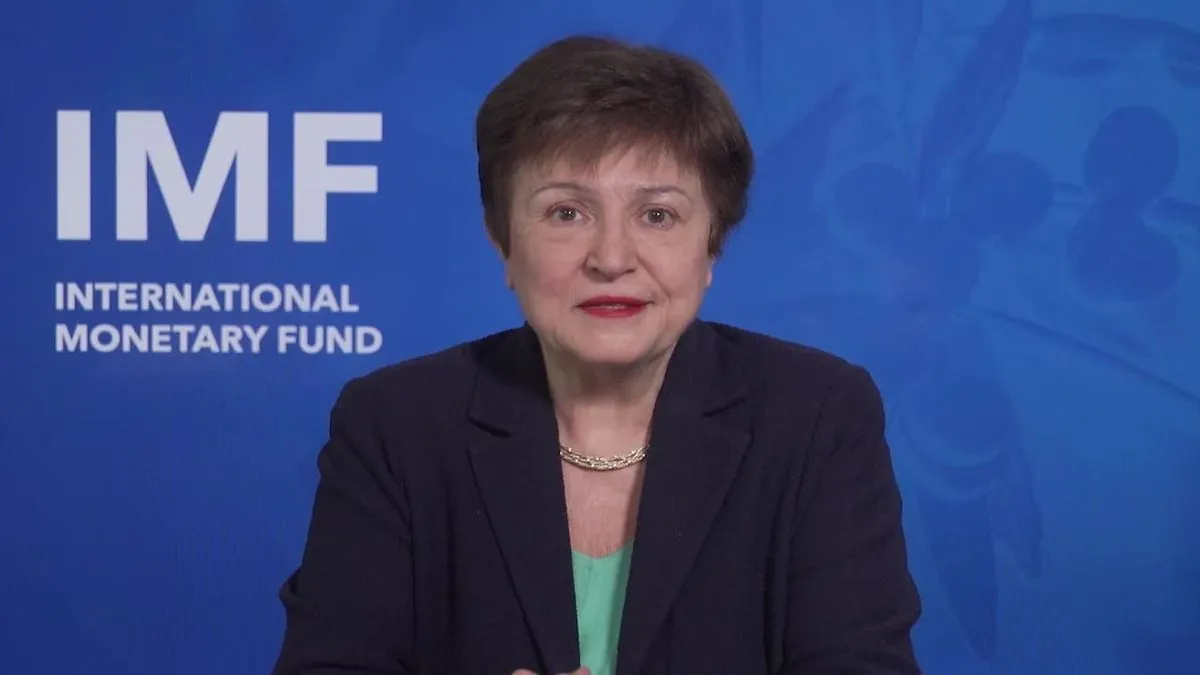IMF Chief Backs Regional Director Amid Argentina Negotiation Shift
IMF Managing Director Kristalina Georgieva expresses full support for Rodrigo Valdes, who steps back from Argentina talks. Deputy Luis Cubeddu to lead negotiations, showcasing IMF's adaptability.

In a recent development at the International Monetary Fund (IMF), Managing Director Kristalina Georgieva has voiced her unwavering support for Rodrigo Valdes, the head of the Western Hemisphere Department. This endorsement comes in the wake of Valdes' decision to step back from negotiations with Argentina, delegating the responsibility to his deputy, Luis Cubeddu.
Georgieva stated, "I have complete confidence in Rodrigo Valdes to lead the work of IMF's Western Hemisphere Department." She further emphasized Valdes' credentials, describing him as "an outstanding economist, a dedicated international civil servant, and a wonderful colleague."
This reorganization within the IMF's leadership structure for Argentina negotiations highlights the organization's flexibility in addressing complex economic situations. The IMF, established in 1944 at the Bretton Woods Conference, has a long history of adapting its approach to meet the diverse needs of its 190 member countries.

Argentina's relationship with the IMF has been particularly intricate, with the country having entered into 22 arrangements since joining the organization in 1956. This latest development in the negotiation process underscores the ongoing challenges in managing Argentina's economic situation.
The IMF, headquartered in Washington, D.C., plays a crucial role in global financial stability. With a current lending capacity of approximately $1 trillion, the organization conducts annual economic assessments for member countries and publishes the influential World Economic Outlook report biannually.
Georgieva, who assumed the role of Managing Director in 2019, has been steering the IMF through various global economic challenges. Her support for Valdes' judgment, including the decision to delegate negotiations, reflects the collaborative approach within the organization's leadership.
The IMF's involvement in Argentina is part of its broader mission to provide financial assistance and economic guidance to member countries. The organization's resources, primarily derived from member country quotas, enable it to offer this support. Additionally, the IMF provides technical assistance and training, further contributing to economic stability and growth worldwide.
As the situation with Argentina continues to evolve, the IMF's adaptability and the strength of its leadership team will be crucial in navigating the complexities of international financial cooperation. The organization's role in managing global financial crises and its collaboration with institutions like the World Bank underscore its significance in the international economic landscape.
While the IMF has faced criticism for some of its policy recommendations in the past, its ongoing efforts to refine its approaches and maintain transparency in its operations remain central to its mission. The current developments in the Argentina negotiations serve as a testament to the organization's commitment to finding effective solutions in challenging economic environments.


































